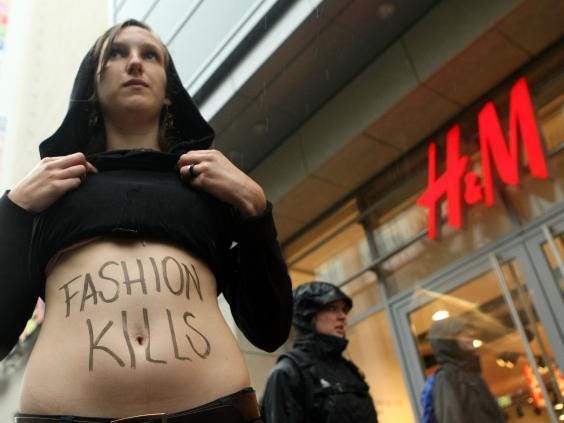 |
| Picture |
Next and H&M say refugees in Turkey were working in their supply-chain factories
Two of Britain’s high street giants have found Syrian refugee children working in their clothing factories in Turkey, leading to calls for other retailers to investigate their own supply chains.
H&M and Next were the only retailers that admitted to identifying child labour in supplier factories in Turkey, but there are fears that the phenomenon could be far more widespread after several other companies failed to answer questions on the use of Syrian workers in their factories.
Along with China, Cambodia and Bangladesh, Turkey is one of the largest producers of clothing sold on the British high street, supplying labels that include Topshop, Burberry, Marks & Spencer and Asos. The country is also the world’s largest host of Syrian refugees, accepting more than 2.5 million people who have fled the conflict since 2011.
A report by the Business and Human Rights Resource Centre (BHRRC), a non-profit organisation that monitors company ethics, warns that few brands are taking adequate steps to ensure that vulnerable refugees are not “fleeing from conflict into exploitative working conditions”.(...)
Hundreds of thousands of Syrian adults in Turkey work for low pay far below the minimum wage of 1,300 Turkish lira (£309) per month. Many children are employed as cheap labour on farms and factories in breach of Turkish and international laws that forbid those under 12 from working. Children aged 13-14 are banned from all but light work.
In an effort to gauge the scale of the problem, the BHRRC asked 28 major brands last month about their Turkish suppliers and their strategies for combating the exploitation of Syrian children and adults.(...)
The BHRRC said that it was alarmed by the responses, warning: “Only a few brands appear to have engaged with the extent and the complexity of these issues in their Turkish supply base; even fewer report taking action to protect these vulnerable workers.” It said that many companies appeared to have an “out of sight, out of mind” approach to auditing their factories, conducting preannounced visits that could allow factory managers to cover up abuses.
Phil Bloomer, executive director of the BHRRC, said that H&M and Next deserved praise for their honesty and urged other companies to take the problem seriously. He said: “No brands want child labour in their supply chain, but what matters is how vigorous they are in looking for it and what they do when they find it. Given reports from the ground indicate refugee child labour is common in Turkey, it is positive that two brands in our report identified this problem and took action to protect the children. We need all brands to show equal vigour in eliminating this curse.”
Discussion. (questions)
- What’s your opinion about the modern slavery? It’s fair for you? Can you imagine your childhood working as a slaver?
- When you buy a t-shirt or some item do you look from where it comes? Are we also responsible for modern slavery?
- If modern slaves aren’t chained up, why don’t they escape? What would you do to stop with child labour?

No comments:
Post a Comment